UPDATE (Friday): President Trump released the following statement on his Truth Social platform: “I am pleased to announce that I will be nominating Mike Waltz to be the next United States Ambassador to the United Nations. From his time in uniform on the battlefield, in Congress and, as my National Security Advisor, Mike Waltz has worked hard to put our Nation’s Interests first. I know he will do the same in his new role. In the interim, Secretary of State Marco Rubio will serve as National Security Advisor, while continuing his strong leadership at the State Department. Together, we will continue to fight tirelessly to Make America, and the World, SAFE AGAIN. Thank you for your attention to this matter!”
UPDATE (Thursday): President Donald Trump said on Thursday that Michael Waltz will be nominated for the position of Ambassador to the United Nations. He will require Senate confirmation in order to be appointed to this position. Secretary of State Marco Rubio will be the interim National Security Adviser.
Michael Waltz, the National Security Adviser in President Donald Trump’s second term in office, will be ousted from his job over a controversial security breach, major national news outlets have reported. Waltz reportedly created a group chat on the messaging app Signal in which himself and other senior White House officials shared classified military plans with Jeffrey Goldberg, the editor-in-chief of The Atlantic.
Prior to being tapped to serve in the Trump administration Waltz served three terms in office as a congressman representing Florida’s 6th congressional district. This district encompasses all of Flagler and Putnam counties plus parts of Volusia, St. Johns, and Marion counties. He was elected in 2018, and won re-election three times before resigning to serve in Washington.
Just as recently as Thursday Waltz had been speaking in his official capacity as National Security Adviser, hours before news broke that he’d be leaving the Trump administration. Along with him, Deputy National Security Adviser Alex Nelson Wong is also reportedly departing. Politico confirmed the reports on Thursday, citing five sources who said Waltz had lost the confidence of his colleagues. Multiple other outlets such as Fox News, CBS News, and ABC News. The story appears to have been first reported by 2WAY’s Mark Halperin.
The White House’s initial response was to refrain from comment on account of the reports coming from anonymous sources, per Press Secretary Karoline Leavitt. An official confirmation from the White House is still awaited as of early Thursday afternoon.
Background
In March 2025 a group chat was created on Signal, a private messaging app often used by consumers seeking higher encryption. Waltz was said to have created the chat, which included Vice President JD Vance, Secretary of State Marco Rubio, Defense Secretary Pete Hegseth, National Intelligence Director Tulsi Gabbard, and CIA Director John Ratcliffe among other officials. Also included was Jeffrey Goldberg, a journalist who quite clearly was not intended to have been among those added.
In the chat, a number of sensitive pieces of information were disseminated in full view of Goldberg. The group discussed an upcoming air strike against Houthi operatives in Yemen, Director Ratcliffe mentioned the name of an undercover CIA agent, and Vance and Hegseth both criticized American allies in the European continent.
Signal, the program used for these discussions, was launched in 2014. The app is touted as having better security than competitors like WhatsApp and Facebook Messenger, and has been known to be used by Washington politicians for covert communications. It is not, however, a program which has been vetted and endorsed by security leaders within the U.S. federal government for the discussion of sensitive and classified information.
Aftermath
Jeffrey Goldberg reported on what had happened in The Atlantic on March 24th. In the coming days and weeks there were congressional hearings and an internal investigation by the Pentagon into the nature of the leaks. The White House initially claimed that no classified information was included in the chat, before Goldberg released a follow-up proving this to be untrue.
President Trump initially reaffirmed his confidence in his top national security staff, including Waltz. He said the day after the leaks that it was a member of Waltz’s office who’d committed the error, and derided Goldberg as a ‘sleezebag’. Waltz denied negative characterizations against him and called Goldberg ‘scum’, but later took full responsibility for the incident.
Chris Gollon is a Flagler County resident since 2004, as well as a staple of the local independent music scene and avid observer of Central Florida politics, arts, and recreation.


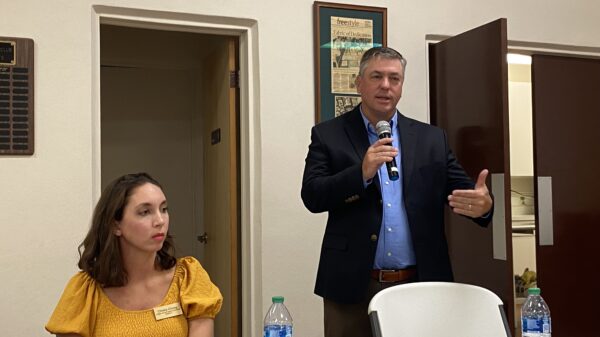


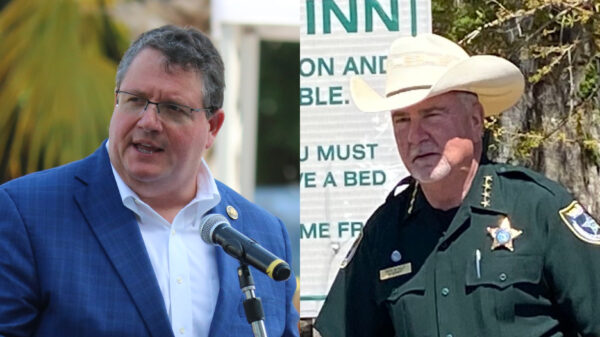












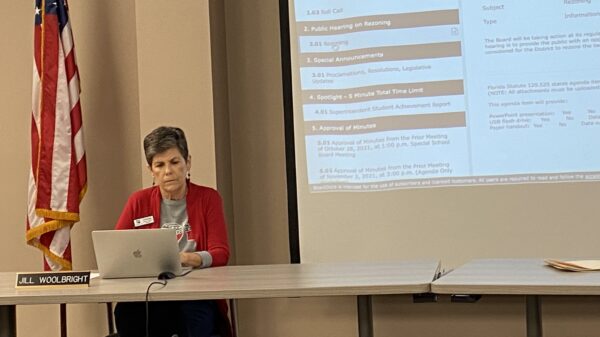

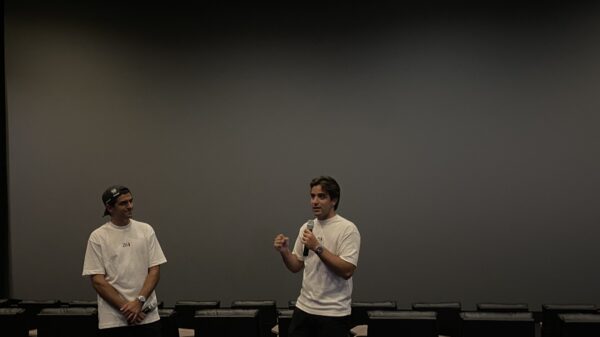












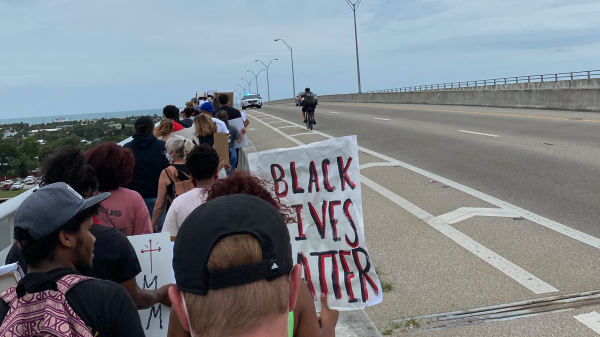
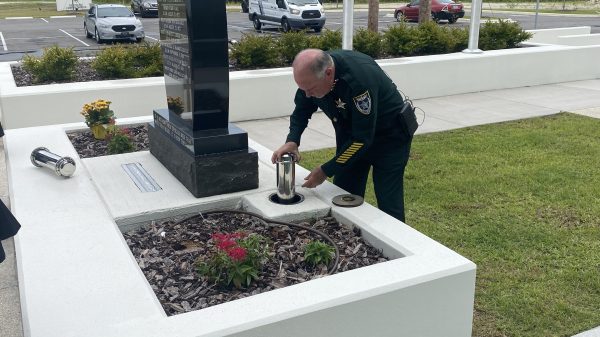






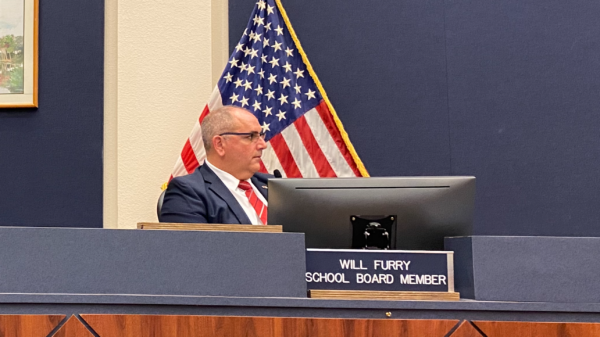



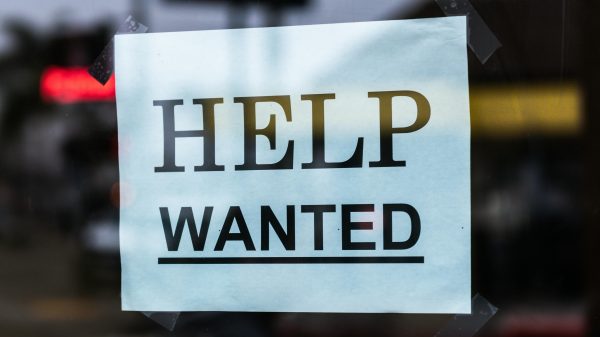


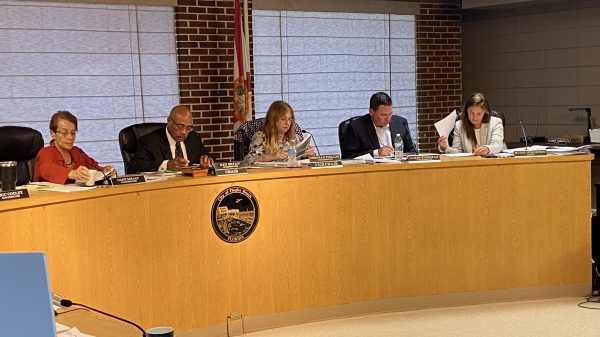
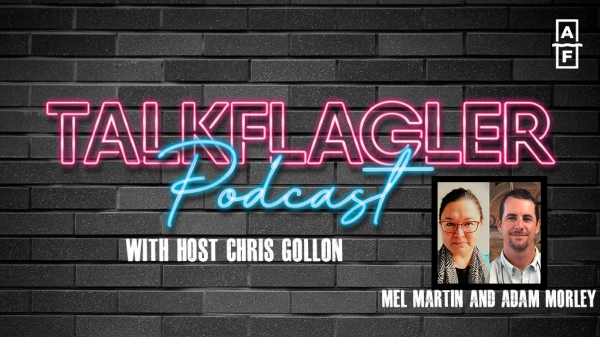
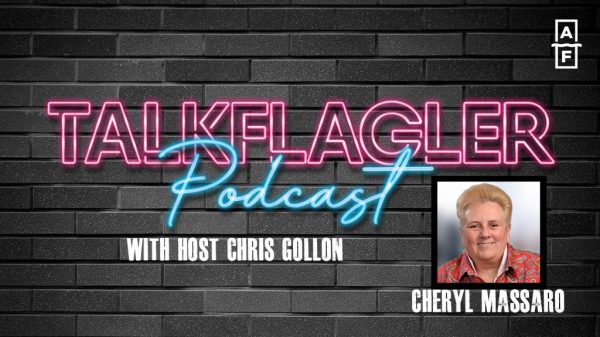
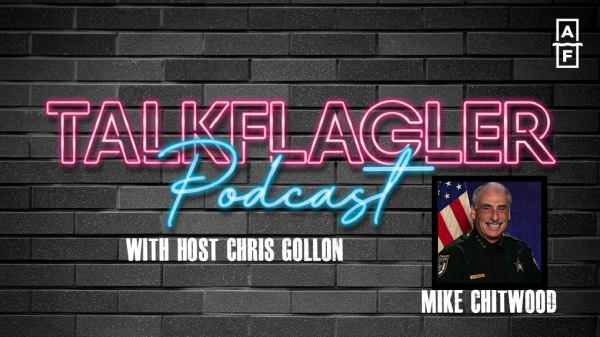
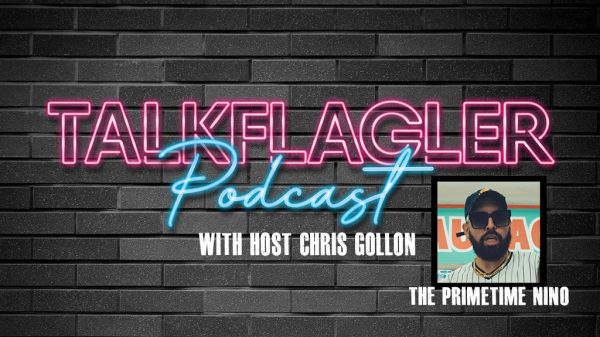

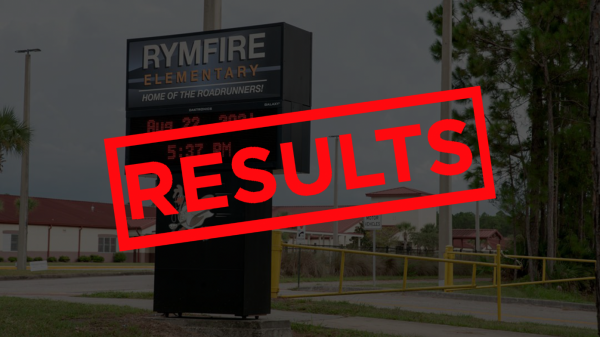
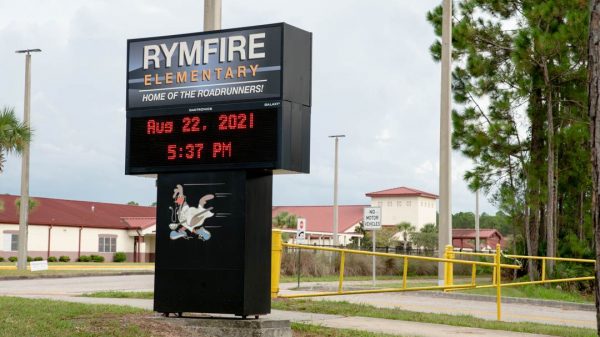




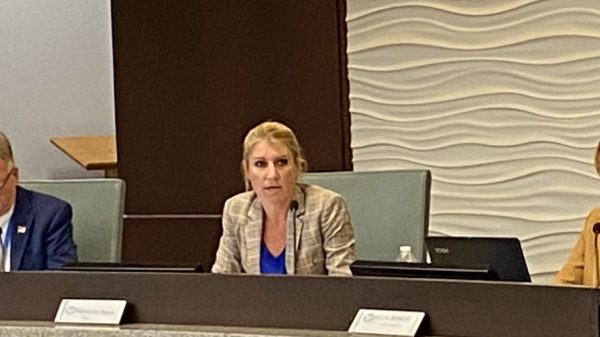




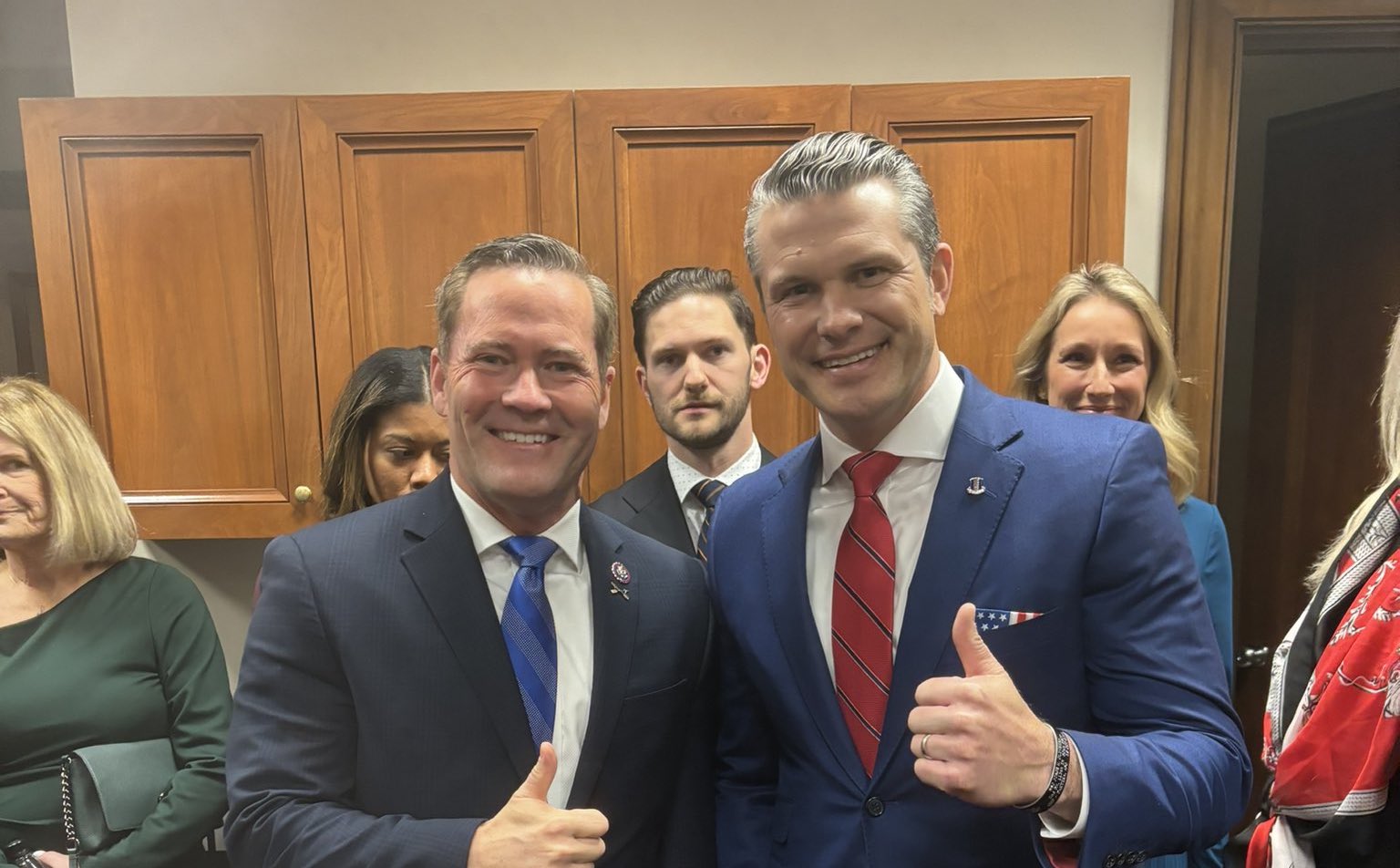










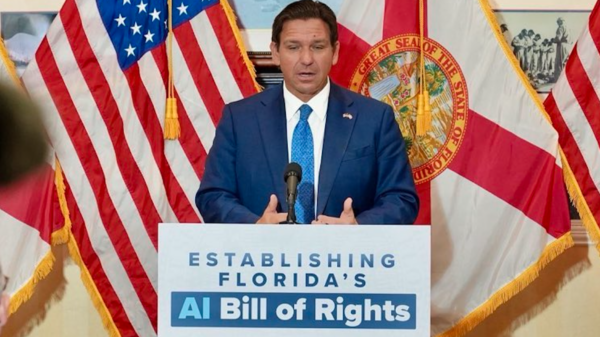

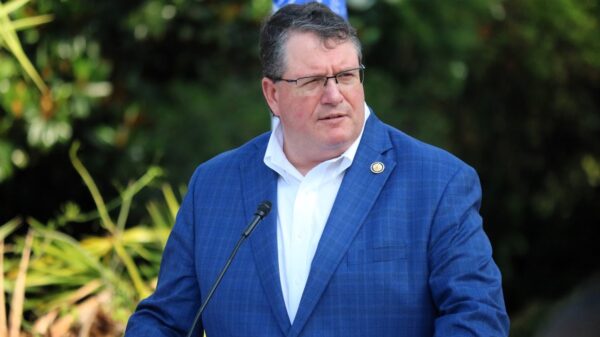



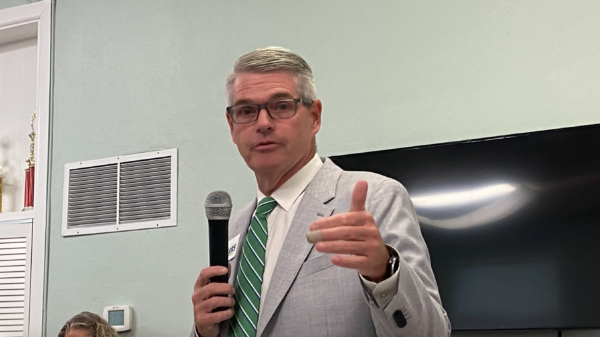

TR
May 1, 2025 at 10:01 pm
Wow the woman to the far left in green doesn’t look happy. Is her name Karen? LOL